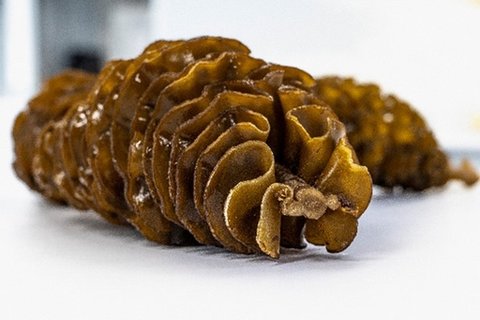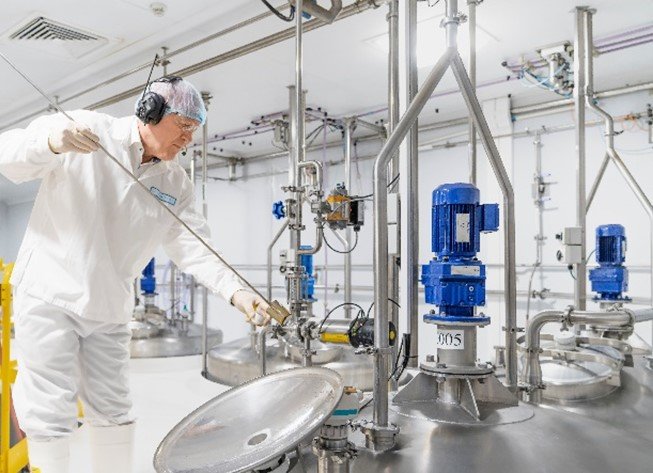Ingredient focus on
— Column
Fucoidan
The functional food and supplement ingredient rising from the deep
KEYWORDS
Fucoidan
Seaweed
Functional ingredients
Marine ingredients
Sustainability
Alternative protein
The seaweed industry is increasingly capturing attention across the globe. With more than 12,000 species described to date (1), seaweeds hold promise to help address a wide range of issues – everything from reducing agricultural emissions to ecosystem management currently resides on the international agenda.
The food and dietary supplement industry is no exception, with seaweeds rapidly garnering the interest of innovative product manufacturers.
State of the art/Analogs
Seaweeds, and their various bioactive components, are playing an increasing role in human health. Whilst some countries, particularly Asian cultures, have a long history of seaweed consumption and are familiar with the various health benefits of macroalgae, others are only recently turning their attention to sourcing from below the surface of the ocean. With a low lipid content, and a high proportion of minerals, fibres, polyunsaturated fatty acids, polysaccharides and vitamins, seaweeds make a highly attractive nutritional proposition (2).
In addition to seaweeds being utilised as nutritious food sources and playing a rising role in global food security and economic development, their intriguing bioactive compounds make them of particular interest to the functional food and nutritional supplement categories (3).
Fucoidan is one such bioactive compound. A sulphated polysaccharide that occurs naturally in brown seaweeds, fucoidan protects the seaweed plant from water borne pathogens and other environmental challenges. After three decades of global research and more than 3500 published scientific papers attesting to its range of bioactivities (4),the spotlight has been turned upon the potential of fucoidan in a number of human health settings.
High purity, certified organic fucoidan extracts are innovative and versatile ingredients. A recent review paper summarised the wide range of applications of fucoidan in the food industry (3). Applications include the use of fucoidans as stabilisers, functional food ingredients, as well as the successful development of delivery vehicles for bioactive compounds and incorporation into innovative food packaging solutions.
The review paper by Mensah et al. (2023) discusses the key biological activities of fucoidans and describes the successful integration of fucoidan into functional foods. These foods range from yoghurt and beverages through to bread and pasta. Fucoidans have also been incorporated into edible films used to coat food products for the purpose of extending their shelf life. Such edible films are promising substitutes for traditional synthetic packaging. They represent a biodegradable, natural, renewable, and non-toxic alternative. Fucoidan-based delivery systems, such as nanoparticles, nanoemulsions and hydrogels, are also described in the paper and noted for their distinct advantages in terms of stability, bioavailability and controlled release.


Fucoidan from the sporophyll of the brown seaweed Undaria pinnatifida is well studied.
High purity, certified organic fucoidans with global regulatory acceptance, including EU Novel Foods Approval and FDA-notified GRAS are now utilised in innovative dietary supplements (5). Supported by an extensive scientific dossier that spans their immune support properties through to gut health and healthy ageing benefits, fucoidans are leading the new wave of algal ingredients. Supplied as a dry powder, high purity fucoidan is versatile, water soluble and easy to formulate with. It is ideal for inclusion in pressed tablets, capsules, gels, sprays and bulk powders.
Recently published updates summarising fucoidan extraction and purification note that methods of extraction are critical, determining both the yield and purity of fucoidan extracts (3). Despite sound yields being obtained with conventional solvent extraction methods, these techniques can compromise the integrity of the fucoidan compound leading them to require additional purification. The development of green extraction techniques means the market can now access fucoidan derived from clean and effective extraction processes.

Green chemistry extraction technologies are employed by the world’s leading fucoidan manufacturers.
As a renewable resource, seaweed holds significant potential to help advance progress towards the Sustainable Development Goals (SDGs). Seaweed aquaculture currently accounts more than 50% of global mariculture production and has been shown to deliver a range of benefits that contribute to a circular bioeconomy (6). Global harvest of wild seaweed resources currently occurs in 32 countries, with many policies already in place to ensure harvesting from natural beds is sustainably and effectively managed (7).
Leading fucoidan manufacturers are making rapid gains towards the SDGs targeting improved health and wellbeing, life below water, affordable and clean energy, and responsible consumption and production. Sustainability initiatives can be observed throughout the entire length of the supply chain - from the sustainable hand harvesting of wild seaweeds, the proprietary green chemistry extraction technology, the productive reuse of by-product, and the exclusive utilisation of renewable energy.
References and notes
- www.algaebase.org
- Sultana F, et al. Seaweed farming for food and nutritional security, climate change mitigation and adaptation, and women empowerment: A review. Aquac Fish. 2023 Sep;8(5):463–80. https://www.sciencedirect.com/science/article/pii/S2468550X22001460?via%3Dihub
- Mensah EO, Kanwugu ON, Panda PK, Adadi P. Marine fucoidans: Structural, extraction, biological activities and their applications in the food industry. Food Hydrocoll [Internet]. 2023;142:108784. https://www.sciencedirect.com/science/article/pii/S0268005X23003302
- https://www.scopus.com
- Fitton JH, Stringer DN, Park AY, Karpiniec SS. Therapies from fucoidan: New developments. Mar Drugs. 2019;17(10). https://www.ncbi.nlm.nih.gov/pmc/articles/PMC6836154/
- Duarte CM, Bruhn A, Krause-Jensen D. A seaweed aquaculture imperative to meet global sustainability targets. Nat Sustain. 2021 Oct 7;5(3):185–93. https://www.nature.com/articles/s41893-021-00773-9
- Mac Monagail M, Cornish L, Morrison L, Araújo R, Critchley AT. Sustainable harvesting of wild seaweed resources. Eur J Phycol. 2017 Oct 2;52(4):371–90. https://www.tandfonline.com/doi/full/10.1080/09670262.2017.1365273

